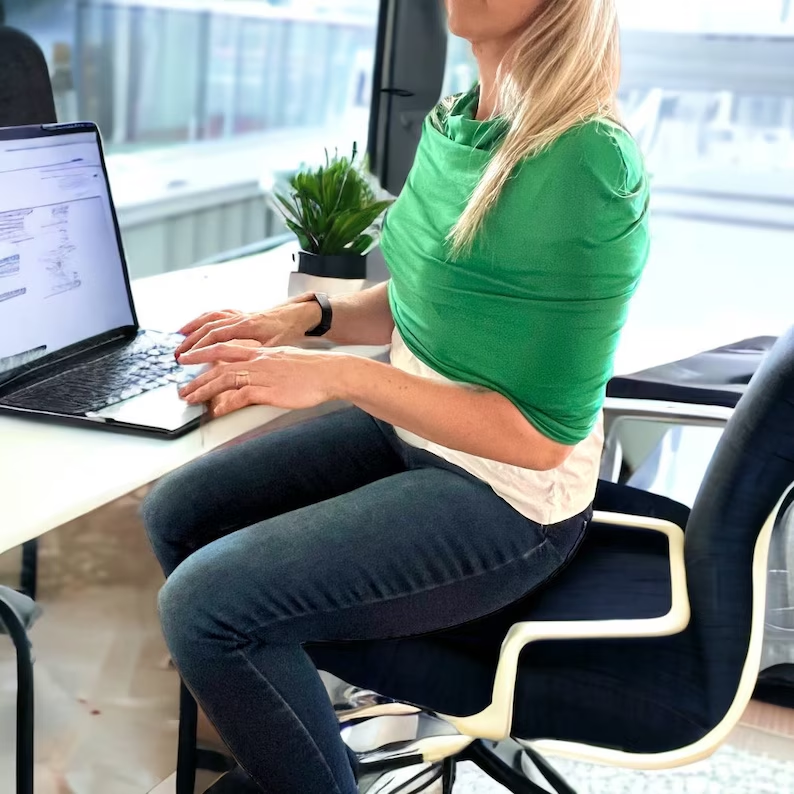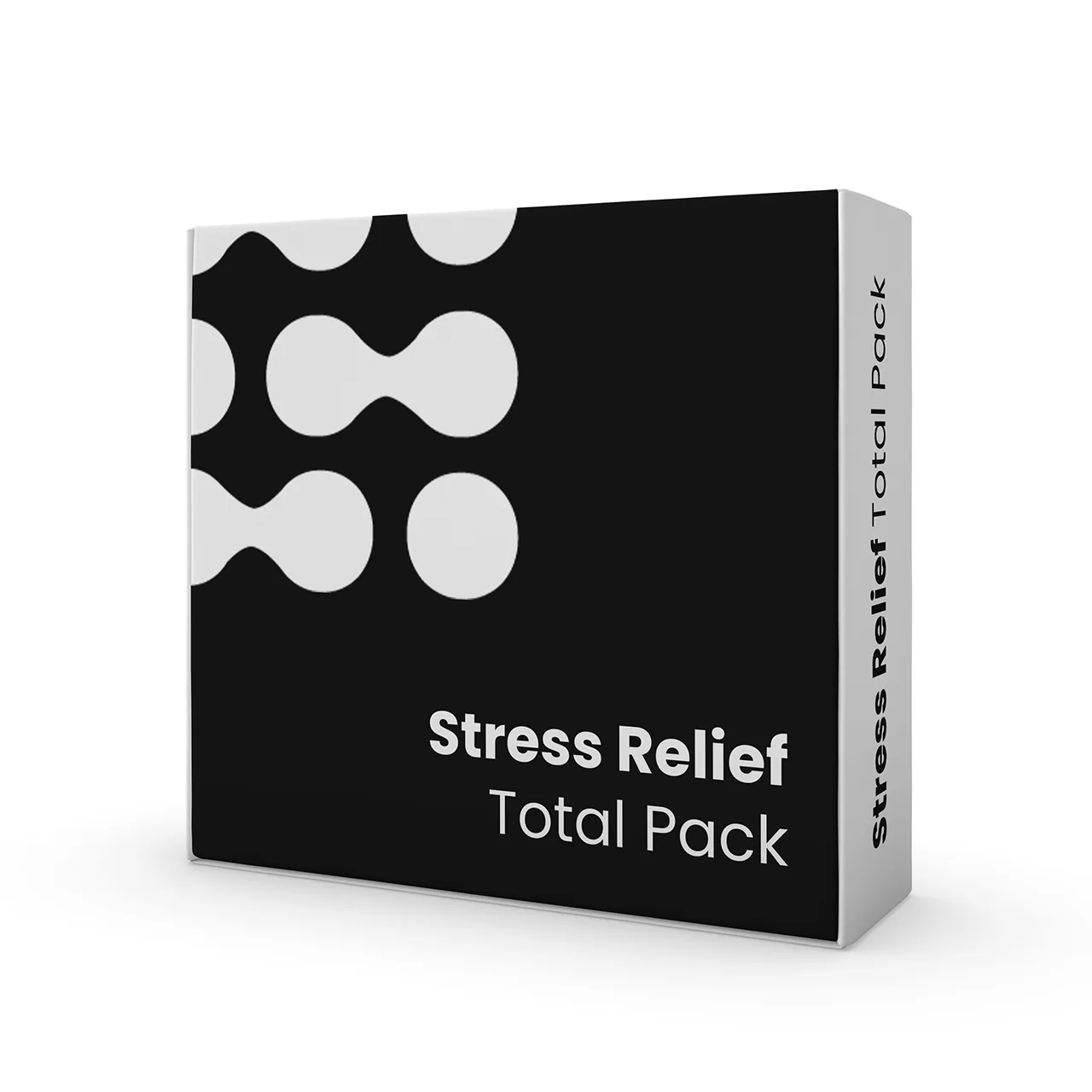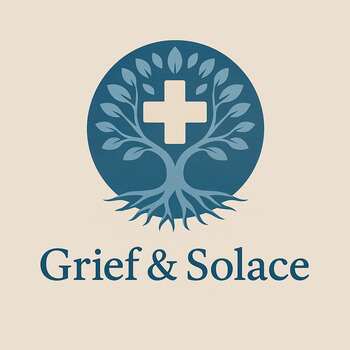Grieving Anxiety: Living in the Shadow of Fear
Grief tied to anxiety steals not just peace but the person themselves, until every breath feels like it is borrowed from a world too loud to survive.

This post blends real grief with grounded knowledge. It isn’t clinical. It isn’t distant. It’s meant to sit beside you—not above you. The story you’ll read is meant to reflect what so many feel when living through or witnessing this condition: confusion, exhaustion, and quiet forms of courage.
If what you read feels familiar, please speak with your doctor. Your pain deserves more than silence.
I Forgot What Calm Felt Like
I don’t remember when it started, and that’s the problem. It doesn’t have a dramatic origin story, no trauma montage, no big breakdown in the middle of a grocery store. Just a slow, creeping feeling that the world might end if I don’t answer this email right now.
I mean what if I miss a call? Someone I love might be dead!
What if I say the wrong thing? I’ll just ruin everything.
🧠 Symptoms:
- Emotional symptoms: Persistent worry, fear, or a sense of impending doom
- Physical symptoms: Increased heart rate, rapid breathing, sweating, trembling, gastrointestinal discomfort
- Cognitive strain: Trouble concentrating, racing thoughts, or obsessive worry
- Behavioral patterns: Avoiding triggers or situations; withdrawal from social interactions
- Sleep disruption: Difficulty falling asleep or staying asleep
- Fatigue: Mental and physical exhaustion despite rest
I look fine, I know that people think anxiety means: panic attacks, hyperventilating, and hands shaking in a paper bag; but those are storms.
My anxiety is climate, it’s always there, a pressure system in the background of everything.
Most days, it lives in my chest, not…sharp…but…tight. Like someone stuffed a sponge between my ribs and poured water into it, slowly. It swells and presses on my lungs. Makes me second-guess if I’m actually breathing or just performing the act of breathing because it’s what I’m supposed to do.
I overprepare, for EVERYTHING. If I’m meeting you for lunch at 1, I’ve mapped the parking, I’ve checked the menu, I’ve calculated walking time, and I’ve thought of three conversation starters in case the silence gets weird. I don’t do this to impress you, I do it because if I don’t, my brain tells me I’ll die. Not in the dramatic sense of course, but in the subtle, insidious sense that whispers: “You won’t recover from this mistake.”
Complications:
- Depression and suicidal thoughts
- Sleep disorders
- Chronic physical symptoms (e.g., headaches, GI distress)
- Substance misuse
- Social isolation
- Impaired job or academic performance
- Lower quality of life
Causes:
- Genetics: Inherited predisposition to anxiety
- Brain chemistry: Imbalance in neurotransmitters and brain regions linked to fear response
- Trauma and life experiences: Abuse, neglect, or witnessing violence
- Medical issues: Conditions such as thyroid disorders, chronic pain, heart or lung disease
- Medication or substance triggers: Withdrawal from alcohol, benzodiazepines, or stimulants
I rehearse texts, I reread messages after I’ve sent them, I worry you’ll misinterpret the tone, and I use exclamation marks like life rafts, hoping you’ll see me as friendly, not frantic.
I delete and retype until the message loses all meaning, and then I send it anyway and hate myself for the next two hours.
When I’m with people, I overcompensate. I make jokes, I smile, I nod too often, and my leg bounces under the table while I pretend to be calm; but I’m not calm, I’m running diagnostics in the background, watching your face, measuring your pauses, analyzing the subtext of every syllable like I’m one wrong sentence away from exile.
And when I’m alone? I replay everything.
I replay things from a decade ago, especially that one thing I said in eighth grade, especially that one time I waved at someone who wasn’t waving at me, and even that one voicemail I left that sounded too eager (Was it too eager? Yeah of course it was). It all comes back, like ghosts that never aged.
I try to sleep…I really do… But the second the room goes quiet, my brain gets louder, it tells me: ‘I forgot something”, “Missed something”, “Screwed something up”. That “someone’s mad at me”, that “something bad is about to happen”, and the only reason it hasn’t happened yet is because I’ve been vigilant.
And the most fucked-up part? Sometimes, I feel proud of it. It’s kept me safe, like worrying is the only reason things haven’t gone wrong yet. Like if I stop, the world will unravel.
That’s the trap. That’s the loop.
And every time I try to break out of it, it whispers:
“Better safe than sorry.”
So yeah, I live with anxiety, and it doesn’t look like much, but it’s a full-time job, one I never applied for, can’t seem to quit, and never get paid for.
But I’m trying… I’m learning that some things don’t need to be prepared for. That silence isn’t dangerous, that I can leave a message on “read” without being a bad person. That I don’t have to earn rest.
Some days, I believe it.
Other days? I just fake it.
But every day, I wake up and try again.
And maybe… maybe that’s enough.
It wasn’t the fear of something going wrong, it was the fear that everything was always just about to.
Risk Factors:
- Childhood trauma
- Chronic illness or serious health issues
- Personality types more prone to worry or perfectionism
- Coexisting mental health disorders (e.g., depression)
- Family history of anxiety or related conditions
- Substance use or withdrawal
Types Of Anxiety Disorders:
- Generalized Anxiety Disorder (GAD): Excessive worry about routine matters, often paired with physical symptoms
- Panic Disorder: Sudden, intense fear accompanied by chest pain, breathlessness, or dizziness
- Social Anxiety Disorder: Fear of being judged or embarrassed in social settings
- Specific Phobias: Irrational fear of a specific object or situation
- Agoraphobia: Fear of places or situations that might trigger panic or helplessness
- Separation Anxiety Disorder: Common in children but also seen in adults, involving intense fear of being away from loved ones
- Selective Mutism: Consistent failure to speak in specific social situations despite speaking in others
- Substance-Induced Anxiety: Caused by drug use, withdrawal, or toxic exposure
- Other/Unspecified Anxiety Disorders: Presenting with severe anxiety but not fitting into established categories
📘 Diagnosis & Treatment
Diagnosis:
Primary care evaluation: Rule out medical causes
Psychological assessment: Exploration of thoughts, behaviors, and fears
DSM-5 criteria comparison: Used to classify anxiety subtypes
Treatment Options:
Psychotherapy:
Cognitive Behavioral Therapy (CBT): Targets negative thought cycles and teaches coping strategies
Exposure therapy: Gradual confrontation of fears to build tolerance and control
Medications:
Antidepressants: Often first-line for long-term management (e.g., SSRIs, SNRIs)
Anti-anxiety medications: Buspirone for ongoing anxiety
Short-term use medications: Benzodiazepines or beta blockers for acute episodes
Lifestyle Strategies:
Regular exercise: Reduces tension and boosts endorphins
Balanced diet: Emphasizing whole foods and reducing caffeine
Good sleep hygiene: Consistent routines and screen reduction
Stress management: Meditation, yoga, breathwork
Avoiding triggers: Including alcohol, nicotine, and stimulants
Complementary Support:
Education and journaling: Helps identify triggers and patterns
Support groups: Connects individuals with shared experiences
Time management and mindfulness: Reduces stress from overwhelm
Therapy adherence: Sticking to scheduled appointments and self-work
keypoints:
– Anxiety is both a mental and physical experience that can be all-consuming
– It often masquerades as overthinking, fatigue, or irritability
– Untreated anxiety can derail sleep, relationships, and health
– Therapy and medication can offer meaningful, life-changing relief
– Support systems and routine are critical for long-term healing
I know this is heavy, and I understand that the road ahead may feel like a tangle of loss and unanswered questions. But please hear this: you are not broken because you are hurting; you are not weak because you are afraid. You are living through something real, and survival itself is a kind of grace. You are allowed to struggle, you are allowed to hope, and you are allowed to not have all the answers today. Whatever comes next, you do not face it empty-handed; you carry every moment of love that shaped you, and that will always be enough to keep going.
🎀 Gifts to help With Anxiety
🏥 Everyday Comforts for Everyday Battles
Managing Anxiety often means needing a little extra help.
Sometimes it’s about restoring dignity, ease, or simply getting through the day with less pain.
These carefully chosen tools aren’t just items; they’re small bridges back to living.
This section is about finding practical support, never shame.
Weighted Compression Wrap – Like a Hug When You Can’t Ask for One
Anxiety doesn’t care what you look like, it just wants your nervous system to shut up. This compression wrap isn’t subtle, but neither is panic. Wrapped around the torso and upper arms, it mimics the calming pressure of a hug, helping the body feel grounded when the mind won’t stop spinning. Wear it while working, studying, or just trying to breathe. Yeah, it looks odd. But it feels like relief.
🌿 Paths to Healing Beyond the Map
Sometimes traditional medicine isn’t enough.
If you’re exploring gentle, alternative options to help with Anxiety,
you might find comfort in plant-based compounds like **CBD or CBG**.
*This section is not medical advice, just a door left open.*
USA Medical Stress Relief Total Pack – A Calmer Baseline for an Overactive Mind
Anxious minds don’t rest; they rehearse. This Total Pack is formulated to support mood balance, stress resilience, and emotional regulation without sedation. With CBD, calming botanicals, and adaptogens, it doesn’t try to mute you, it helps you find your volume knob again. Ideal for those managing daily tension, overthinking, or chronic unease that wears on the body and soul.
Need a Different Path Forward?
Every journey through grief looks different. Choose the next step that speaks to where you are now:
When You're Ready to Start Healing
Healing doesn’t mean forgetting.
It means finding small ways to carry your grief with strength and grace.
These are the stories, tools, and gentle steps to begin walking forward…at your own pace.
When You're Still in the Thick of It
Sometimes healing feels like a lie.
If you’re not ready to move on…if the pain still roars louder than the world wants to hear…this is the place where you’re allowed to feel it.
No sugarcoating. No pretending. Just truth.
When You're Holding on to Who’s Still Here
Grief reminds us to love louder.
If someone you love is still with you, this is your place to celebrate them, honor them, and create new memories while there’s still time.
Joy and sorrow can live side by side.






